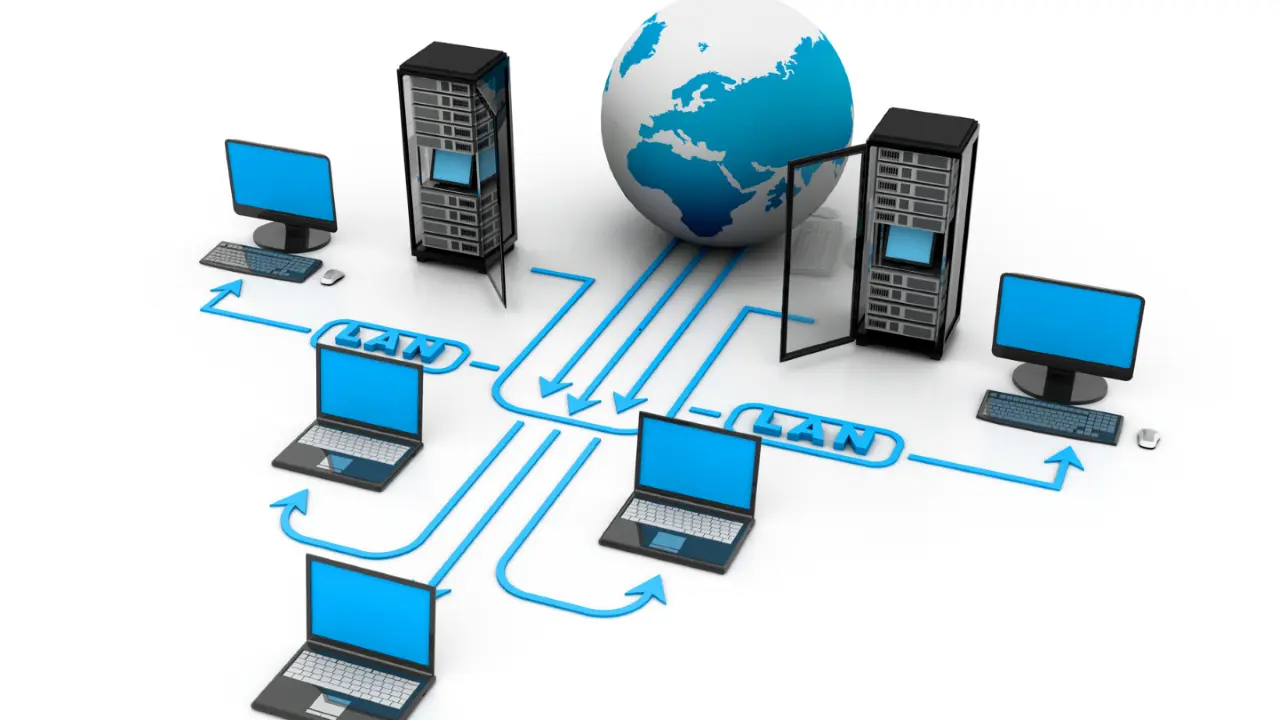Table Of Contents
Introduction to Types of Email Accounts
Email is at the heart of how we communicate, both personally and professionally. But have you ever wondered why some emails sync across all your devices while others don’t? Or why some email systems feel much more robust and secure?
Understanding the different types of email accounts—POP, IMAP, and Microsoft Exchange—can help you choose the right option for your needs. Whether you’re managing emails for personal use or business purposes, knowing the strengths and limitations of each type can make a big difference. Let’s break it down.
What is POP Email?
POP (Post Office Protocol) is one of the oldest email account types. Designed for simple email retrieval, POP downloads your emails from a mail server to your device, often removing them from the server afterward.
Imagine it like retrieving physical letters from your mailbox—you take them home, and they’re no longer in the mailbox.
Pros and Cons of POP
Pros:
- Offline Access: Emails are stored locally, so you can access them without an internet connection.
- Simplicity: Great for basic email users who don’t need syncing across devices.
- Storage Savings: By downloading emails to your device, the server space is freed up.
Cons:
- No Syncing: Emails won’t sync across multiple devices. If you check your email on your phone, it won’t show up on your laptop.
- Risk of Data Loss: If something happens to your device, your emails could be lost unless you’ve backed them up.
- Outdated Features: POP lacks modern functionalities like real-time syncing or folder organisation.
POP is best suited for users who primarily access email from a single device.
What is IMAP Email?
IMAP (Internet Message Access Protocol) is the go-to choice for those who want email access on multiple devices. Unlike POP, IMAP keeps your emails on the server, allowing you to sync and access them anywhere.
Think of it like reading a book at the library—the book stays there, but you can come back and pick up where you left off.
Key Benefits and Drawbacks of IMAP
Benefits:
- Seamless Syncing: Emails, folders, and actions (like marking messages as read) sync across all devices.
- Cloud-Based Storage: Emails are stored on the server, reducing the risk of data loss if your device is damaged.
- Advanced Features: IMAP supports folder organisation, email flags, and real-time updates.
Drawbacks:
- Requires Internet Connection: Offline access is limited unless you specifically download emails for offline use.
- Server Storage Limits: Since emails stay on the server, storage can fill up quickly, requiring occasional clean-up.
- More Resource-Intensive: IMAP requires a stable internet connection and can use more bandwidth.
IMAP is perfect for people who need access to emails from multiple devices, whether for work or personal use.
Understanding Microsoft Exchange
Microsoft Exchange is a more advanced email system, commonly used by businesses. It’s not just about emails—Exchange acts as a comprehensive communication and collaboration platform.
Exchange supports emails, calendars, contacts, tasks, and more, making it a robust solution for organisations that need to stay connected and productive.
Features of Microsoft Exchange for Business
- Two-Way Syncing: Like IMAP, Exchange syncs emails, but it also syncs calendars, contacts, and tasks across devices.
- Advanced Security: Built-in tools like encryption, multi-factor authentication, and spam filtering help keep sensitive data secure.
- Shared Resources: Teams can share calendars, schedule meetings, and collaborate on tasks, making Exchange ideal for businesses.
- Mobile Device Management (MDM): Administrators can remotely manage and secure devices connected to the Exchange server.
- Customisation: Exchange allows IT teams to customise policies and permissions, giving businesses greater control.
For businesses, Microsoft Exchange is more than just an email system—it’s a centralised productivity hub.
Choosing the Right Email Account for Your Needs
With three options, how do you decide which email account is right for you? It depends on your priorities:
- POP is suitable for individuals who only use one device for emails and prefer to store emails locally.
- IMAP is ideal for users who need access to emails across multiple devices, like smartphones, laptops, and tablets.
- Microsoft Exchange is designed for businesses or teams that need advanced features like shared calendars, enhanced security, and collaboration tools.
Real-Life Scenarios
- Personal Email Use: If you’re someone who checks email only on a home computer, POP might suffice. However, IMAP ensures your emails sync across devices like your phone and tablet.
- Small Business Owners: IMAP works well if you just need reliable email access across devices. But if you manage a team, Exchange’s shared resources and security features are invaluable.
- Corporate Organisations: Microsoft Exchange is the clear winner, offering a full suite of tools for communication, security, and productivity.
FAQs
What is the main difference between IMAP and POP?
IMAP keeps emails on the server, allowing you to access and sync them across multiple devices. POP downloads emails to a single device and often removes them from the server, limiting access to one device.
How secure is Microsoft Exchange?
Microsoft Exchange is highly secure, with features like email encryption, spam filters, and multi-factor authentication. Businesses can also enforce device policies to protect sensitive information.
Can IMAP and POP be used together?
Technically, yes, but it’s not recommended. Using both protocols can lead to confusion, as actions (like deleting emails) may not sync properly between devices. It’s better to stick with one based on your needs.
Final Thoughts
Understanding the differences between POP, IMAP, and Microsoft Exchange can help you choose the right email solution for your needs. Whether you need simple offline access, seamless syncing across devices, or a robust business platform, there’s an option to suit you.
For personal users, IMAP is the modern standard. Businesses, on the other hand, can benefit immensely from the advanced features and security offered by Microsoft Exchange.
Still unsure which one’s right for you? Start by evaluating how you use email today and what you might need in the future. The right choice can simplify communication, improve productivity, and keep your data safe.
Get In Touch
Need expert IT assistance? Contact Hamilton Group today! Our specialists offer top-notch solutions tailored to your needs. Don’t let tech troubles hold you back.
Talk to us about your business 0330 043 0069
Or E-mail hello@hgmssp.com and one of our experts will get back to you.
Schedule A Quick Callback
The fastest way to figure out if we’re a good fit for your business is to have a quick chat about it. Schedule a 15-minute call so we can get right to the point.
Proactive, Responsive, Hamilton Group
Grab a drink and let’s have a quick chat about your business, and see how we can help you.
Book your call below or call us on 0330 043 0069


Carl Hamilton
A Message from our Founder/CEO
“We treat every client as if they were a part of our business to provide quality and comprehensive IT support that can be counted on 24/7, 365 days a year. We succeed only when you succeed.”
Let’s work together
IT Support You Can Trust
The best IT Support in Harrogate is also delivered across the UK 24/7 and we are ready to help you with all your Managed IT service needs. Services are provided in areas including Leeds, Liverpool, Manchester, Wakefield, Wetherby, York, Newcastle, Bradford, Bolton, Glasgow, Wigan, Derby, London, Luton, Birmingham, Sheffield, Peterborough, Portsmouth, Reading, Nottingham, Milton Keynes, Telford, and more.
Talk to us about partnering with an IT Support Company that cares
Move your business forward not back with HG.
Same Day Call-back.
Monday – Friday 09:00 – 17:30.
“Our email wasn’t performing very well so we asked Hamilton Group to take a look & Carl proposed to migrate us to MS Exchange.
Carl was very helpful throughout & the migration went very well.
He was on hand to sort out any teething issues, taking calls early morning & into the night, to ensure we were up & running smoothly.
Would recommend for knowledge, attention to detail & great customer service.”
Ian Porter
Fotofabric Limited












